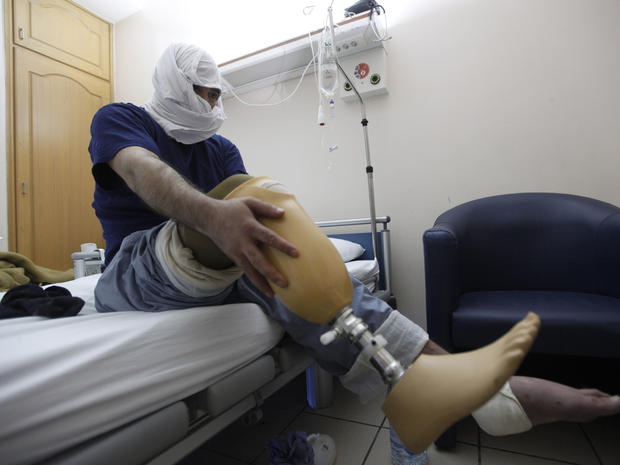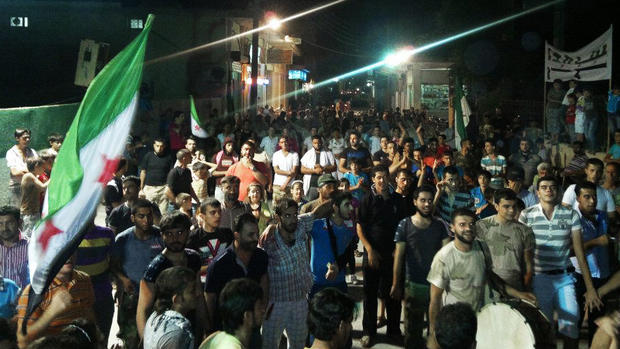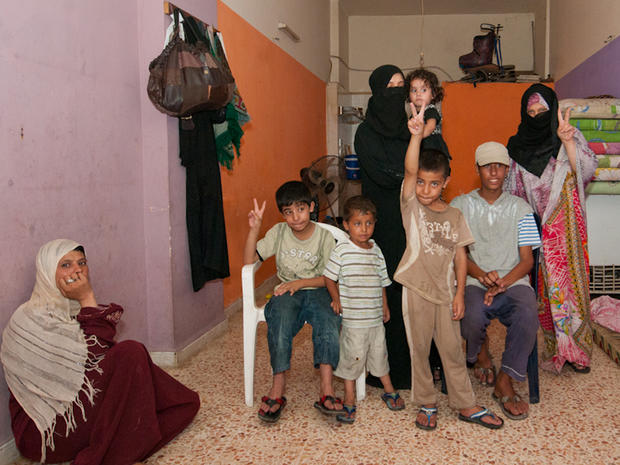For wounded Syrians who manage to escape, the agony of absence and prayers for justice
(CBS News) TRIPOLI, Lebanon - The injury to her fourth vertebrate left her mostly paralyzed, so the woman can no longer hold hands. Instead, she laid her limp wrist across my arm as she spoke, tears streaming down her waxy, pale skin.
"My children, I will see them as soon as possible," the 24-year-old mother of three told CBS News. "But the thing that keeps me going, what keeps me in high spirits, is seeing victory, seeing the end of that criminal Assad and all his loyalists."
The woman - who, with a sly smile, told us to call her "Lolita" - was shot in the leg and then run over by a truck trying to escape government shelling in her Syrian village. After 10 days in the back of a car, she was finally smuggled across the border and made it to a hospital in Lebanon.
"Inshallah," or God willing, she told us, she will regain the ability to move.
"In a way, these are the lucky ones," said the doctor who showed us around the small rehabilitation facility. Many more injured Syrians bleed to death on the roads, before they ever reach medical care.
The doctor told us the types of injuries he's treating have changed over the course of the conflict, which has been gaining momentum for a year and a half.
"At first, it was mostly protesters, men and boys shot randomly in the lower body," he explained. But that changed after government forces laid siege to the Baba Amr district of Homs, retaking the area from rebel forces in January. The victims, and their injuries, diversified at that point, according to the doctor.
"Everything," he said. "Everything you can imagine."
Until that point he had spoken mostly French and Arabic, but this he said in English, probably to make sure his point got through. Like the others, he asked not to be identified.
Syria rebels brace for Aleppo battleAP: U.S. weighs more direct involvement in Syria
Syria opposition gathers; Aleppo in crosshairs
One floor up, we visited the room a Syrian farmer was sharing with other wounded.
The damage from a metal rod in his hip, and the inch-wide surgical wounds across his abdomen would heal. The real problem, the doctor told us, was his eyes.
One was missing, the socket sewn brutally shut. The other was scarlet.
"The cow was eating outside and I went to get it because there was shelling," he said through a translator. "As I was bringing her back, the rocket fell beside me."
Inshallah, he said, his sight will return and he can go back to his farm. The doctor wasn't so sure.
Since the start of the conflict, opposition members estimate that more than 20,000 Syrians have fled to Tripoli, Lebanon's second largest city, to escape the violence.
But the violence hasn't always stopped at the border.
Earlier this month, fighting broke out between pro- and anti-Assad groups on Tripoli's streets. Eight died and dozens more were injured.
The sudden influx has also caused a city-wide housing crunch. Refugees are seeking shelter anywhere they can.
Up a dusty and seemingly deserted road, we met a woman living with her six children, her mother and her sister in a small, one-room store.
"I do not sleep. Only after my body makes me," said the woman, who we agreed to identify only as Um-Khaled - literally, the mother of Khled. "I worry about my husband and my 15-year-old son, who are still inside."
In the corner, a small TV was tuned to Al Jazeera. Communication with those still inside Syria is difficult, so for most, news reports are the only way to try and keep tabs on their families.
"I can't stand being far away from home, so even if the regime does not fall, I am thinking about going back," she told us.
But as the conflict continues, it is less and less certain what kind of country she will find if she does return.
The U.K.-based Syrian Observatory for Human rights estimates that 19,000 Syrians have been killed since the start of the uprising. Despite some recent success by opposition forces and several high-profile defections, the Assad regime has shown no sign of backing down.
During this holy month of Ramadan, Muslims all over the world will spend their days fasting and in prayer. For the refugees we met, those prayers all share a common thread.
They want Assad brought to justice. They want their wounds to heal. They want their country to be free.
Before we left her hospital room, we asked "Lolita" when she thought the war would end.
"I don't know," she said, "Inshallah, very soon."


